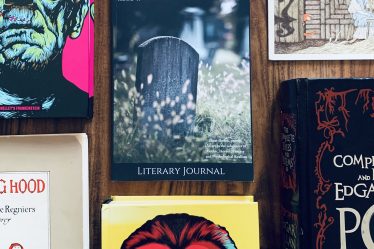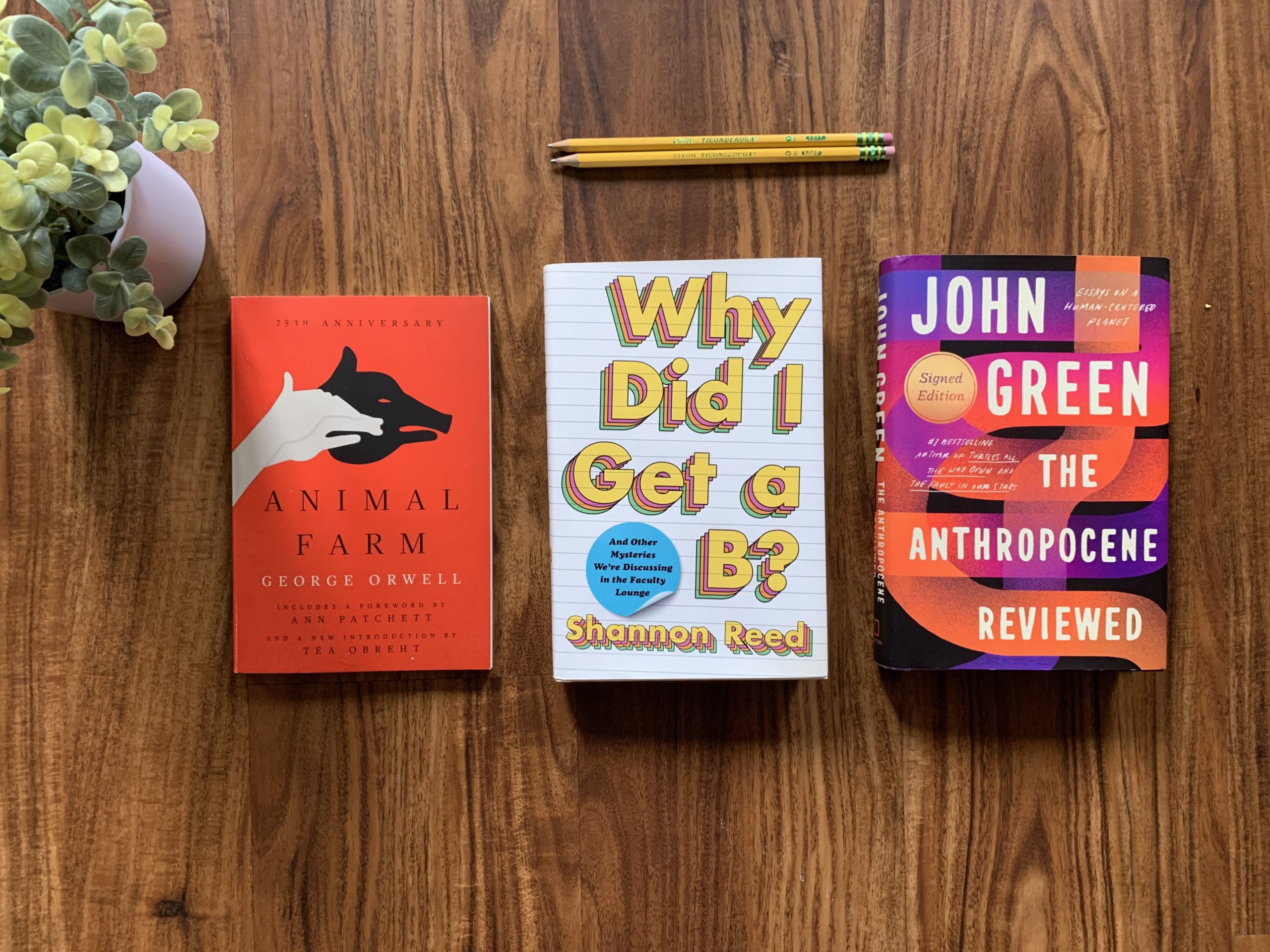
Reading over the summer was not easy this year. As the COVID-19 pandemic began winding down (fingers-crossed), so too had my energy and appetite for reading. During the dramatic and drawn-out saga of e-learning, reading and writing had been, perhaps, the most important modalities by which I communicated with others. Every day, I was writing emails, reading emails, reading directions, reading ‘the news’, reading textbooks, reading poetry, reading literature, reading non-fiction, writing essays, writing articles–the list goes on and on. Even the English majors can begin to feel fatigued when it is by an acute surplus of written word that we communicate with one another. Of course, there was plenty of ‘zooming’ going on (with the occasional accompanying aural conversation), but reading and writing had been at the forefront of my life since the novel Coronavirus swept the states back in January of 2020.
And so, like many folks, I became tired. I could not listen anymore to the screaming on both sides. I could not find the peace, the middle ground, or the point. Interestingly, I believe George Washington warned us about this when he said:
“However [political parties] may now and then answer popular ends, they are likely in the course of time and things, to become potent engines, by which cunning, ambitious, and unprincipled men will be enabled to subvert the power of the people and to usurp for themselves the reins of government, destroying afterwards the very engines which have lifted them to unjust dominion.”
I certainly felt as though we were on a rollercoaster propelled by an unstable, potent, and politically motivated engine that was eagerly rearing to send us off a cliff from which the American public could never return. The deluge of media felt like it had consumed me. Divisive opinions, polarized ‘news’, and hot-button politics were so readily available on every social media platform, TV show, movie, podcast, and within, of course, every book, that it felt as though I was neck-deep up crap creek with no hope of turning back.
When school finally let out in early May of 2021, I went into what one might call ‘a reader’s hibernation’. I hastily shoved my textbooks in my closet, removed The New York Times app from my phone, and was steadfastly motivated to binge-watch all of Schitt’s Creek, Downton Abbey, and The Walking Dead until my brain was numb enough to the world to return again for my senior year in the fall of 2021.
It was around season 5 of Downton Abbey (after already shamefully finishing both Schitt’s Creek and The Walking Dead) that I realized something was, dare I say, missing?
What was it, I wondered, that I was longing for? It was as if one day I woke up and the Grantham family (though splendidly wonderful in every way) was no longer filling the space within me that was once devoted to–you guessed it–reading.
Perhaps it was because I knew I could no longer hide behind Netflix as the world around me continued marching on, in parade-like fashion, towards a dumpster fire of disaster. Perhaps I just became bored in my hibernation. But, perhaps somewhere deep down inside of myself, I also knew that my students would someday need a teacher who, in the face of a divided country and an unstable education system, would come to class with just the right book, an engaging lesson plan, and an undefeated demeanor.
When the protagonist Montag, a ‘fireman’, in Ray Bradbury’s book, Farenheight 451, is called to burn a home with books (if you recall, books are especially illegal in this novel and firemen start fires rather than extinguish them) he explains that the ‘criminal’ book-owning woman made the choice to burn alongside her books. And then, in a moment which was both provocative and earnest, Montag says “There must be something in books, something we can’t imagine, to make a woman stay in a burning house; there must be something there. You don’t stay for nothing.” I think I understand for the first time how extremely right he both is and was.
I’m not certain our ‘house’ is burning yet. But people seem to be playing with matches in this country during the middle of extreme drought.
It was as if one day, I simply woke up and realized that the only ‘fire’ extinguisher we have, truly, is text. It’s dialogue, it’s research, it’s books,–it’s education. And, as a teacher, I cannot ethically remove myself from it–not even during the summer months. But still, even this ‘extinguisher’ must be wielded with care–too much water can cause a flood just as too much fire can burn down the ‘house’
I have decided to read this summer (and for life) because, without reading, I feel terribly empty. But also, (and perhaps most importantly) I read, just as Bo Burnham recently said in his new comedy special, Inside, because “I want to help to leave this world better than I found it.”
Here are the books I have read and am reading this summer. I hope this list inspires you to go to the library, to journey to the bookstore, to download an e-book, or to listen to an audiobook. I hope it inspires you to read.
John Green’s The Anthropocene Reviewed
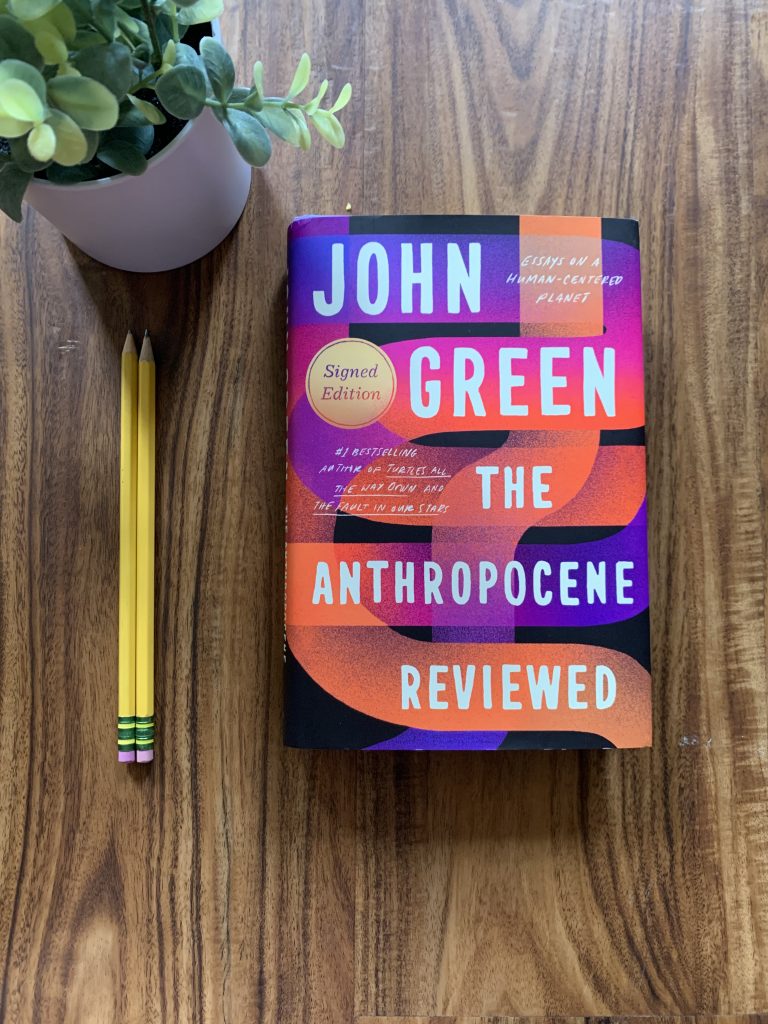
Every time John Green releases a new book, I get excited. As in, I get a bit jittery in the bookstore checkout line and on the ride home. John Green has a way of resonating with not only the ‘young adult’ audience (whatever that means nowadays), but all folks. Green examines life through a hyper-intelligent, humorous, and uniquely focused lens. From his most famous quotes like “There are infinite numbers between 0 and 1. There’s .1 and .12 and .112 and an infinite collection of others. Of course, there is a bigger infinite set of numbers between 0 and 2, or between 0 and a million. Some infinities are bigger than other infinities,” to “butt is legs”, this man has a way to leave me in awe, dumbfounded, crying for some reason, and also laughing–sometimes multiple of these at once. When all is said and done and I finish yet another John Green book, I am changed for life.
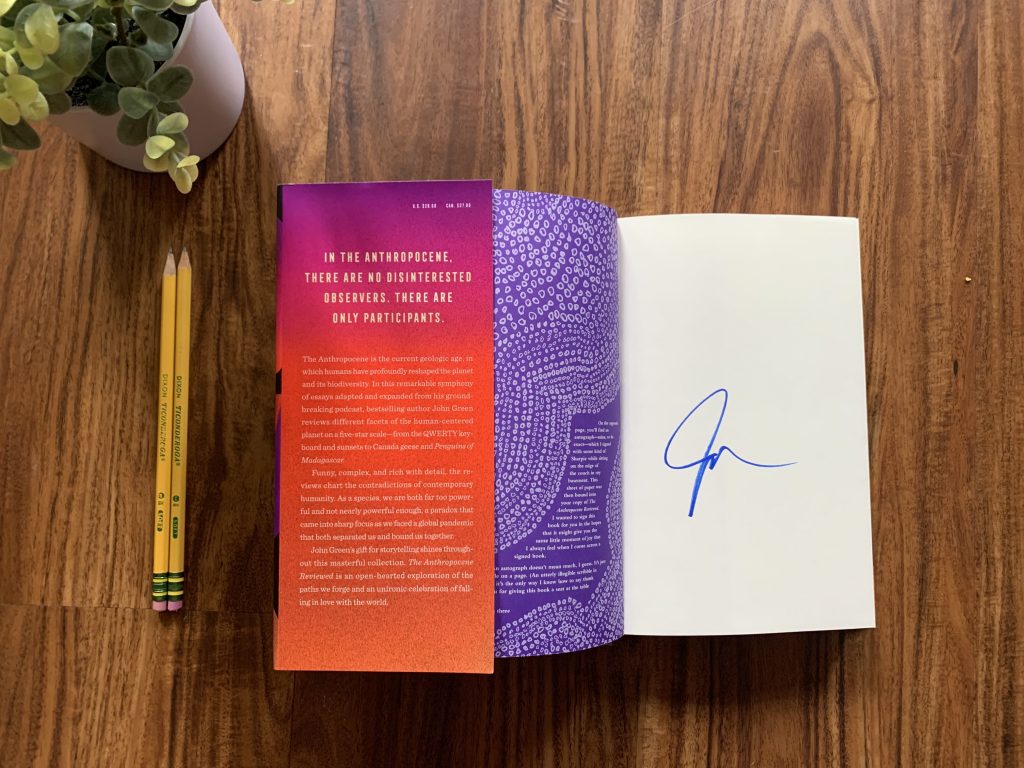
Did I mention that almost all the copies of his new book, The Anthropocene Reviewed, are signed? At least, all the copies I’ve seen in bookstores across my midwestern location are. I’m serious. They didn’t even sell unsigned editions at my local bookstore. John Green certainly didn’t forget to be awesome; this book comes with a sliver of organic connection to its author, which is just downright cool.
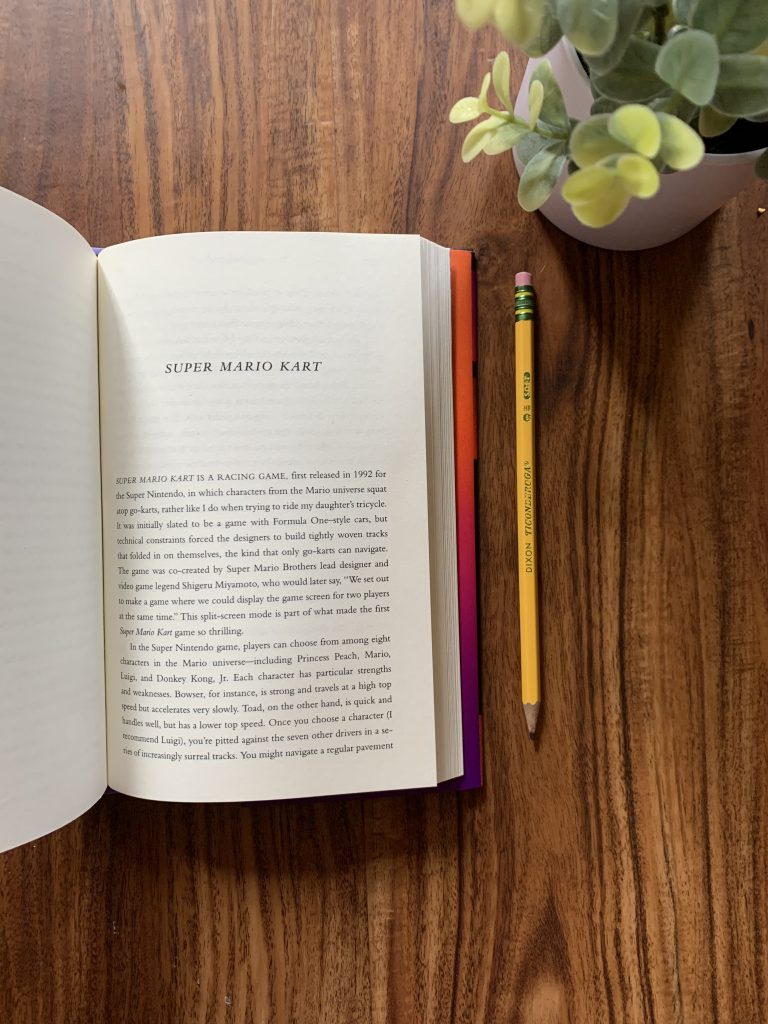
This book is a collection of short essays in which John Green reviews certain aspects of the ‘Anthropocene’ or things existing within “the period during which human activity has been the dominant influence on climate and the environment.” Green rates things out of five stars, one being the lowest score and five being the highest.
In this book, John Green sometimes writes about topics that one might consider more ‘serious’ such as Viral Meningitis or CNN. He also does humorous reviews of things like Super Mario Kart, Canada Geese, Scratch and Sniff Stickers, and even Diet Dr. Pepper. This was a balance that I, as a reader, much appreciated.
There is no way to describe the lens through which John Green examines and writes about our world other than engaging and eye-opening. His essay simply titled, Plague, discusses many things, one topic of which is whether the nature of ‘plague times’ is truly ‘unprecedented’ as people say it is when, in fact, to Green, it feels “quite precedented”. He connects the history of plagues experienced by past humans to our experiences now. He discusses great writers such as C.S. Lewis and the historian Rosemary Horrox in context with this shared human experience. Green poetically puts in words what we all feel, stating at the end of his essay that “Plague is a one-star phenomenon, of course, but our response to it need not be.”
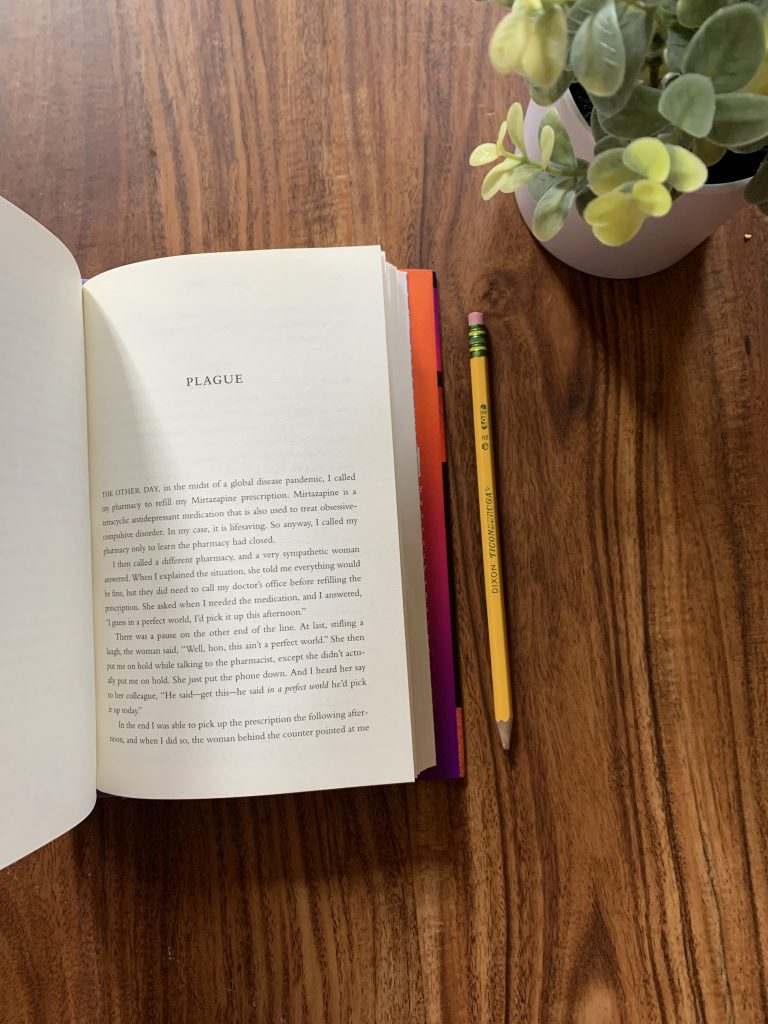
My favorite essay of his is Academic Decathalon, which is found on page 89 of my copy. In this essay, he recounts joining the Academic Decathalon team with the support (and the insistence) of his friend, Todd. Green is initially hesitant to join, as he feels as though he might not belong in this astutely academic group (the irony here was certainly not lost on me). But at that time, Green’s grades were not competitive, and he did not feel like an ‘academic’. But, after much hard work, Green’s team succeeds immensely in competition. Green explains “I won seven medals–four of them gold–out of a possible ten events.”
However, when the season is over, Green’s friend, Todd, says something thought-provoking and touching. Todd, explains his love for rivers, as they “keep going”. This is a nod to the fact that even after the competition is over after high school is over–they both must keep going, keep learning, and keep being learners. Green notes “we were the sixth-best Academic Decathalon team in the nation, we were getting just the right amount of utility from our Zimas, and we loved each other. Rivers keep going and we keep going, and there is no way back to the roof of that hotel. But the memory still holds me together.”
This essay is beautiful for so many reasons. It’s a coming-of-age story just as much as it is a recount of friendship, nostalgia, and helpful, life-long pedagogical philosophy.
All I can say is that my students will be reading this with me at some point in the near future. And long after the book is tucked away–on shelves, in boxes, or even shoved in closets– we will be better people for reading it together. I give this book five stars.
Animal Farm by George Orwell
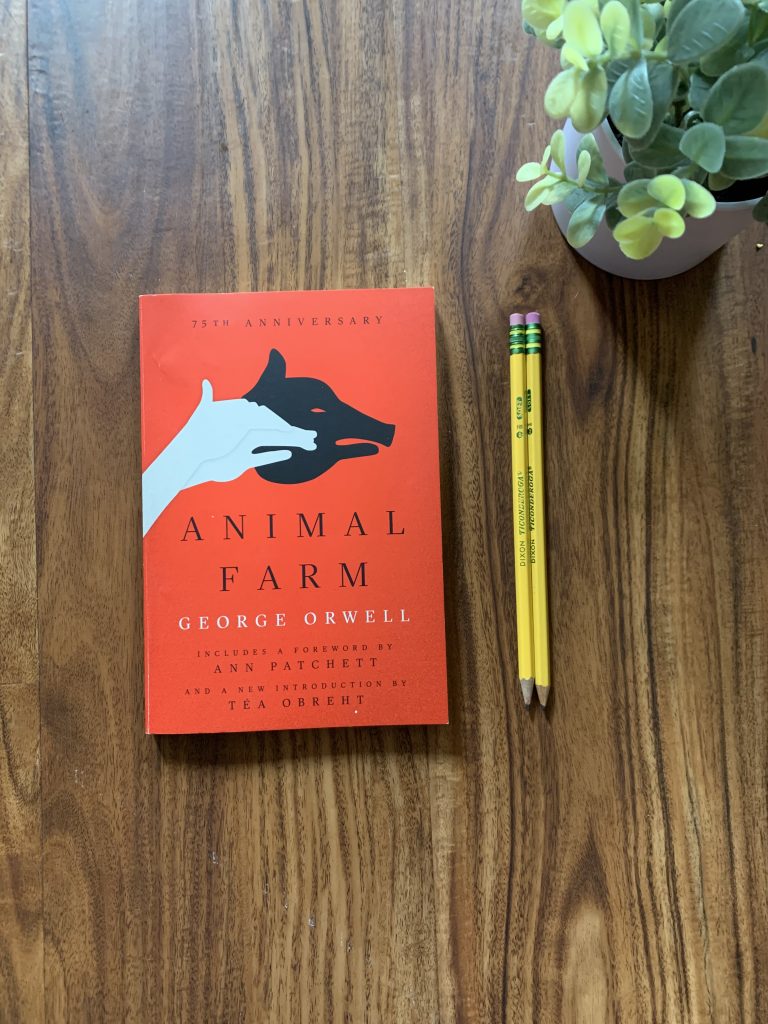
I like to re-read things. Usually, though, I must admit I don’t often run to classical ‘canonical’ literature for my summer choice reading. This summer, though, I was tasked with writing lesson plans for my Educational Psychology class. For this class, I decided to craft lesson plans for a novel that I found both relevant and necessary. George Orwell’s novel, Animal Farm, met both of these qualifications.
This book tackles big ideas and asks big questions. What is true freedom? What is individualism? What causes people to rise up against oppression? What is tyranny and how does it start? I honestly cannot think of more relevant questions my students should be seeking to address right now. I can’t think of more relevant questions to ask myself right now.
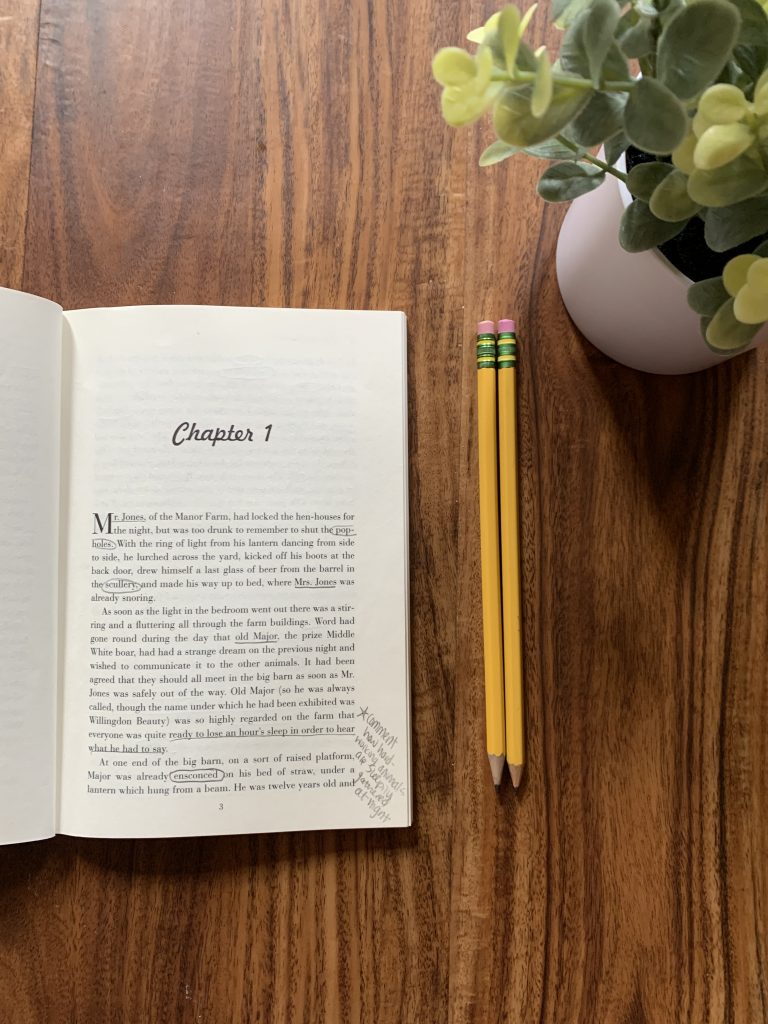
Also, this book is short. (Gasp!) All great books are equal, I suppose, but some books are just more equal than others… Animal Farm’s brevity allows for more classroom work to take place. We can have longer class discussions, do more research, and think critically together more often because there is less content to cover in an already very limited time frame (class time is often much, much less than 50 minutes). These were all things I was thinking about as I chose this book as both a summer read and subject for my lesson plans.
I recommend this book to all people who feel overwhelmed by the political uncertainty our country is facing. If read with care, George Orwell may very well lift you from a place of confusion and drop you into a keen sense of how to rise above conformity, confront oppression, and how to stand strong in the face of tyranny.
Why Did I Get A ‘B’? by Shannon Reed
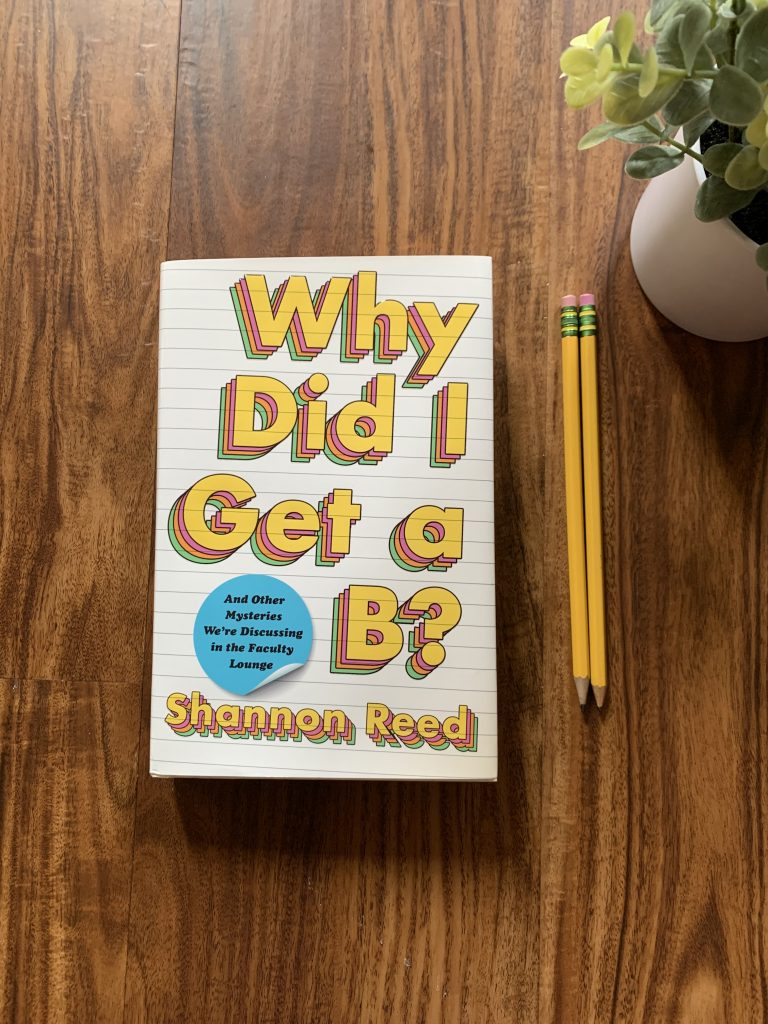
Ok, so, this book is more for teachers, I suppose. If you’re not interested in the experiences of teaching, then this book might not be for you. But, if you are like me, and are a big fat nerd and lover of all things teaching, then proceed! I cannot recommend this book more for folks like me.
In Why Did I Get A ‘B’?, Shannon Reed recounts her many diverse experiences in the field of teaching. Over the course of her 20+ years of teaching experience, she’s worked at the preschool level through the collegiate level as an educator. We see the good, the bad, the pretty, and the very, very ugly when it comes to working as a teacher.
I personally snatched this book off the shelf because, in high school, I often asked my teacher that exact same question. “Why did I get a B, Mr./Mrs. _______?”
The question haunted my high school mind. You must understand, grades can be seen, unfortunately, as more important than the actual learning in many high schools due to the system in which students must ‘earn points’, ‘get good grades’, and ‘keep up their GPA’s’ to be competitive in their college applications. As a high schooler, my grades felt like they foretold my future. Get an A, get into Northwestern. Get a B, you’re going to get rejected. Get a C? You might as well not even go to college.
When I saw a book, I knew it would be for me. It certainly was, but not for the reasons I thought.
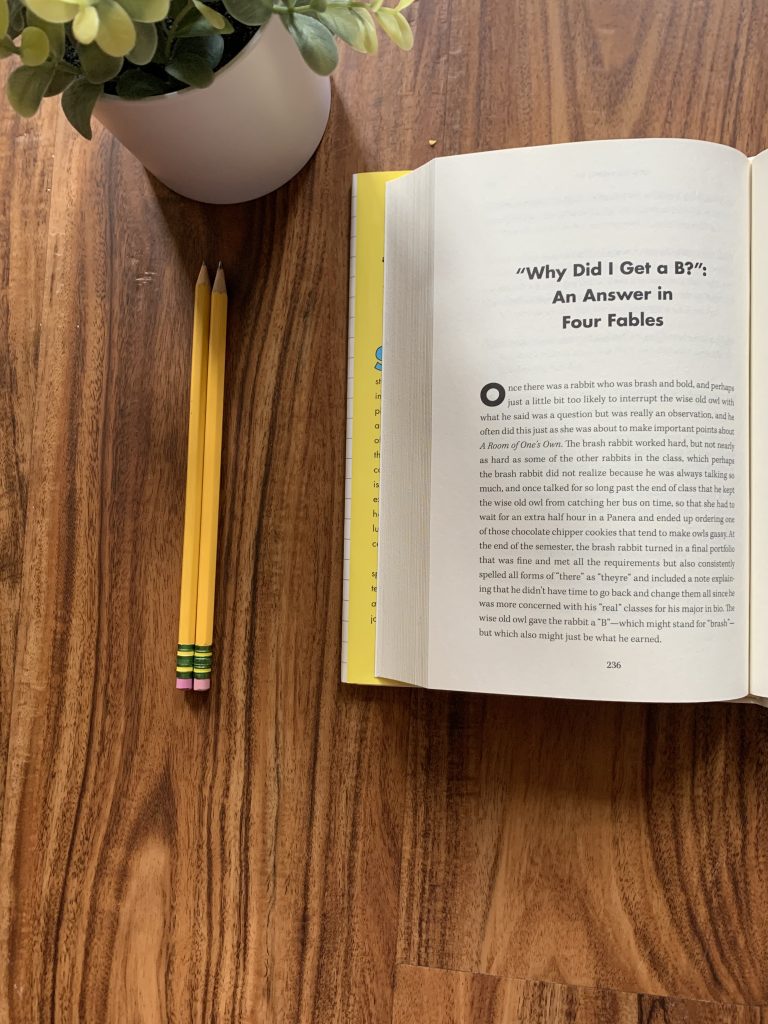
This book, much like John Green’s The Anthropocene Reviewed, is also filled with short essays. It also has lists, poems, and even short ‘screenplays’ of experiences lived by Shannon Reed–all related to her experience as a teacher. My favorite essays are the ones that discuss her most challenging student, Paulie. Paulie was bully to not only to other students, but to Reed as well. She shares the stories of Paulie with relatable humor, grace, and realism that every teacher can appreciate. It is an absolute must-read. I hope all my teacher-friends find a copy at their library or local bookstore.
Happy Reading!
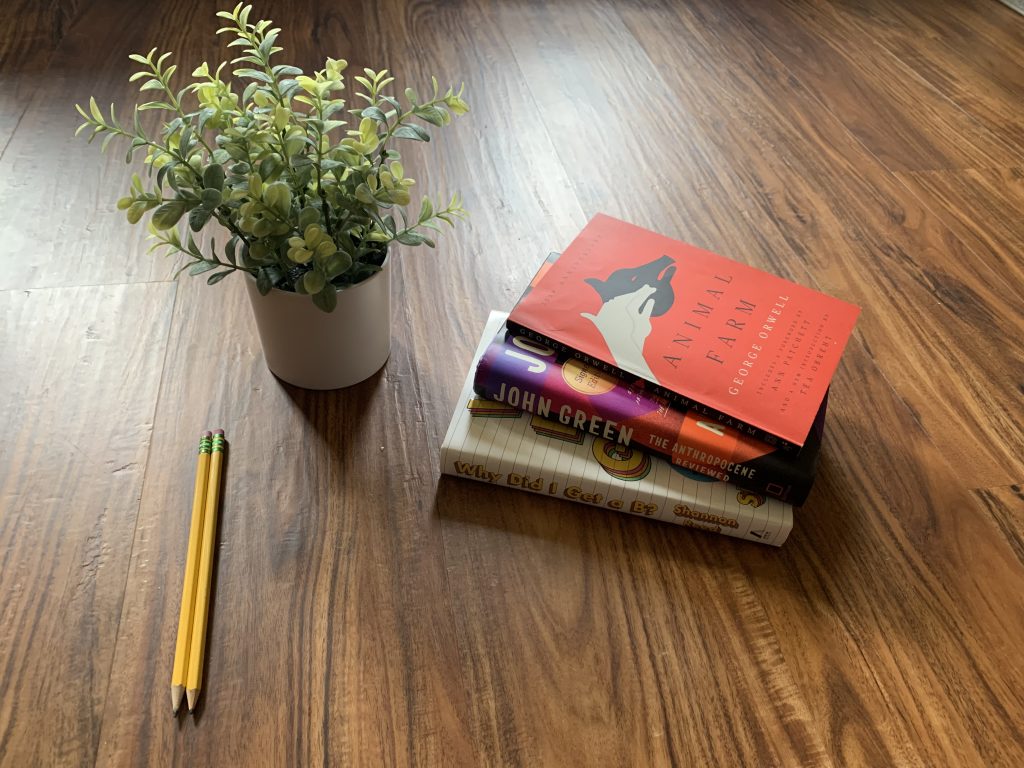
I truly hope this blog post was fun to read and helpful for you, wherever you are on your journey in this strange, strange world. Reading is power, use it well. And of course: Happy reading!

